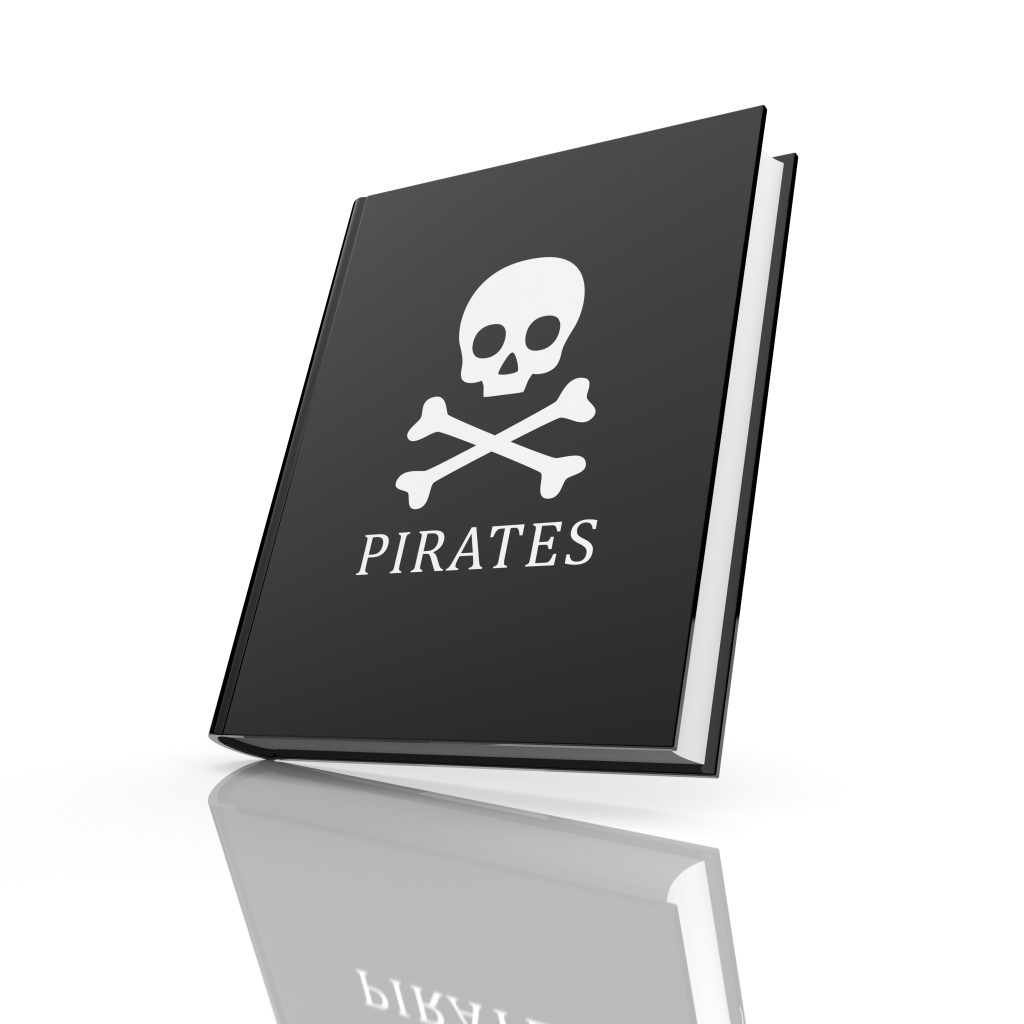“The war on book piracy is not something that will be won any time soon. The concern for authors’ rights most definitely should continue. I would like to see more public awareness and attention from the media, the government, law enforcement, cybersecurity experts, book organizations, businesses, and consumers.”
 In my previous article for IP Watchdog, “An Awareness Crusade Against the Online Piracy of Books,” I delved into the growing problem of book piracy. I knew the harmful effects of this illegal activity all too well. My award-winning book, Profit and Prosper with Public Relations®: Insider Secrets to Make You a Success, for which I have a U.S. trademark registration for the title and a registered copyright, was being offered as a free download without my knowledge or permission. In countless other situations, these unscrupulous sites don’t actually give away copies of people’s books at all, but instead, offer malware to unsuspecting participants, damaging an author’s name, reputation or brand.
In my previous article for IP Watchdog, “An Awareness Crusade Against the Online Piracy of Books,” I delved into the growing problem of book piracy. I knew the harmful effects of this illegal activity all too well. My award-winning book, Profit and Prosper with Public Relations®: Insider Secrets to Make You a Success, for which I have a U.S. trademark registration for the title and a registered copyright, was being offered as a free download without my knowledge or permission. In countless other situations, these unscrupulous sites don’t actually give away copies of people’s books at all, but instead, offer malware to unsuspecting participants, damaging an author’s name, reputation or brand.
These unfortunate scenarios have been occurring far too often. As an experienced public relations professional, I wanted to offer my perspectives and insights and help get the word out. Since then, I have continued fighting for this cause in an ongoing battle with pirates. But has anything changed in 2019? And more importantly, what do readers need to know?
Quantifying the Problem
When it comes to cybercrimes and book piracy, many individuals differ in their opinions about what is right, legal, or ethical, and whether or not this is actually a “real” problem at all. Through my research, and by contacting authors, watchdog organizations, businesses and the public, I have found the popular consensus to be that the threat of online book piracy is still very much a growing concern for authors, publishers and the book industry as a whole.
According to a July 28, 2019 article on Forbes.com by Adam Rowe, $300 million in publisher income is lost annually due to online piracy. This statistic came from the Authors Guild in a presentation given during Book Expo 2019. A 2017 Nielsen consumer survey covering e-book piracy presented at a London book fair found that $315 million in U.S. book sales was lost annually due to piracy.
Emerging Scams
With this in mind, it is even more concerning that a new and disturbing trend is now emerging. I recently came upon a fake website that was advertising “free” copies of my book. It featured reader photos and comments indicating that they were endorsing my work. The people profiled appeared to be personally asking for these free copies.
One person’s message really caught my eye. Karen McKnight’s comments seemed to be legitimate. She, too, is in the PR business and gave the impression that she might be genuinely interested in reading my book. I decided to contact her in order to advise her that I had not authorized my work to be distributed for free.
Based on the information provided by the post, I was able to track Karen down, and sent her an email. What I found out was that she had never actually written the copy that I saw. She also told me that in other similar situations like mine, the phony website changes her words to match an author’s profession in a type of catfish scenario. (Setting up a false personal profile on a social networking site for deceptive purposes.) Since her actual photo and real name appear to endorse a book, the author and public are left to think that she may really be a financial planner, real estate agent, consultant, or something else, causing unnecessary confusion and damage to her name and reputation. With that in mind, I wanted to help tell her story. If something like this can happen to Karen, it can certainly also happen to anyone else.
But it doesn’t end there. Karen mentioned that she had also been the victim of another type of online book piracy scam. The following is her incredible story: (Note: Karen’s name has been changed to protect her privacy.)
“Several years ago, I commented on a popular celebrity’s post on Facebook, and my message received 3,000+ likes. Ever since, my name and profile photo have been used without my consent on a website claiming that I have access to thousands of different types of books.
Each month I get messages from people around the globe asking me to send them links to download books, PDF’s and more. I have never heard of any of these books, or have ever downloaded them. It’s frustrating to have my name and photo used without my consent. I know that authors work hard to develop and curate content, and I don’t want them thinking that I am distributing their work without their blessing, because that is certainly not the case.”
Fighting for Authors’ Rights
One organization that has been working hard to help protect publishing rights is the UK’s Society of Authors. In 2019, they had written to Internet Archive’s Open Library to demand that they discontinue the practice of lending scanned copies of physical books on their site.
According to the organization, “Open Library continues to unlawfully scan copies of physical books and make them available for loan as e-books. They do not ask permission to make these scans, nor do they pay any royalties to authors or publishers. These books are available for loan all over the world.” They continue, “Internet Archive’s Open Library calls this practice Controlled Digital Lending, and wrongly claim that it is lawful in the US under the US doctrine of ‘fair use’. This practice is definitely unlawful in the UK.” So far, the Society of Authors has received support from the Authors Guild (their sister organization in the United States) as well as from the Writer’s Union of Canada, and the Australian Society of Authors.
Some readers may still feel that it is perfectly alright to get free books without having to pay for them. I’ve found many book sharing sites out there, including the popular Project Guttenberg, that offer free e-books on the web.
Echoing these sentiments, an article appeared in The Guardian last year by Allison Flood that discussed how many readers feel entitled to read pirated downloads of books for free. She mentioned that the site OceanOfPDF had been shut down after Penguin, Random House, HarperCollins, and other publishers had issued “hundreds of takedown notices.” As mentioned in the article, former users of the site then attacked authors as “grossly elitist” for expecting to be paid for their work. Many of these non-paying consumers feel that books are too costly and justify their theft. They think that authors, publishers and other rights holders are wrong for demanding payment for their work.
The Future of Book Publishing
Obviously, the war on book piracy is not something that will be won any time soon. The concern for authors’ rights most definitely should continue. I would like to see more public awareness and attention from the media, the government, law enforcement, cybersecurity experts, book organizations, businesses, and consumers. After all, we need to pursue this important fight together. The future of legitimate book publishing will depend on it.
Image Source: Deposit Photos
Image ID: 30014897
Copyright: Pixelery.com

![[IPWatchdog Logo]](https://ipwatchdog.com/wp-content/themes/IPWatchdog%20-%202023/assets/images/temp/logo-small@2x.png)

![[Advertisement]](https://ipwatchdog.com/wp-content/uploads/2024/04/UnitedLex-May-2-2024-sidebar-700x500-1.jpg)
![[Advertisement]](https://ipwatchdog.com/wp-content/uploads/2024/05/Quartz-IP-May-9-2024-sidebar-700x500-1.jpg)
![[Advertisement]](https://ipwatchdog.com/wp-content/uploads/2024/04/Patent-Litigation-Masters-2024-sidebar-700x500-1.jpg)

![[Advertisement]](https://ipwatchdog.com/wp-content/uploads/2021/12/WEBINAR-336-x-280-px.png)
![[Advertisement]](https://ipwatchdog.com/wp-content/uploads/2021/12/2021-Patent-Practice-on-Demand-recorded-Feb-2021-336-x-280.jpg)
![[Advertisement]](https://ipwatchdog.com/wp-content/uploads/2021/12/Ad-4-The-Invent-Patent-System™.png)







Join the Discussion
3 comments so far.
Anon
August 31, 2019 09:43 amBenny,
It gets worse than that.
To the extent that digital goods has made the “just copy, no harm” view an exponential accelerator of the zeitgeist of “anything on the internet is free,” it really isn’t too long before additive manufacturing and the ability to reproduce most anything at home will challenge the other IP domain of protections for utility.
I do reflect that this site will occasionally ask guests the star trek/star wars viewpoint preference question, and that originally Star Trek was purposefully set in a future scenario of “no material needs” based on (at least to some extent) replicator technology.
These types of advances very much MAY challenge traditional business models — and is ONE reason why the Efficient Infringer Front has a very real presence — not just in the IP domain of utility protection, but in the IP domain of expression protection.
Benny
August 30, 2019 03:50 pmPro Say,
A generation of young people are growing up today assuming that anything on the internet is free. This blog site is free. Articles like the one posted above will not change this overnight. Maybe the publishing industry, like the music industry, will have to change it’s business model to survive, since the supply of old fogeys like me who still order books and CD’s from retail businesses will soon dry up.
Pro Say
August 28, 2019 02:30 pmThanks for shining a bright light on this worldwide problem Rhonda.
Authors (and musicians and other creatives) are just as deserving of being paid for their literary, musical, and other creative works as are inventors for their patents.
Intellectual property is intellectual property.
If you aren’t willing to pay for it, don’t use it — don’t steal it.
Folks who steal intellectual property would scream bloody murder the second someone even attempted to steal their personal property, real property, or their hard work (by not paying them for it).